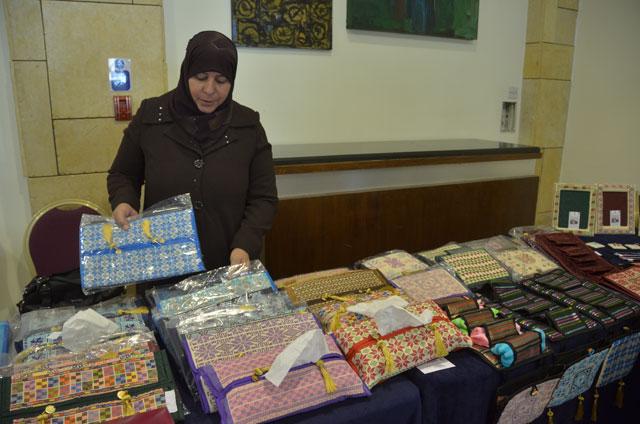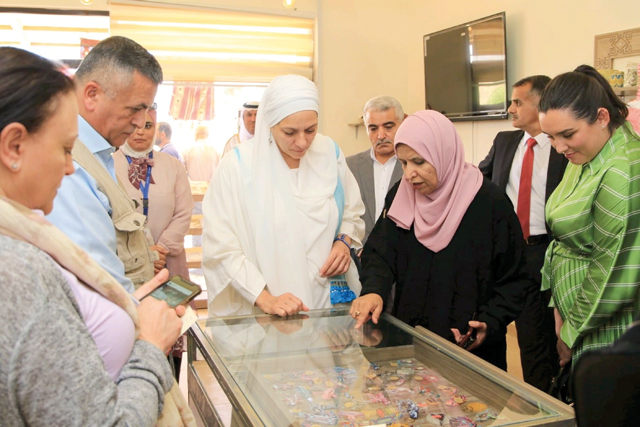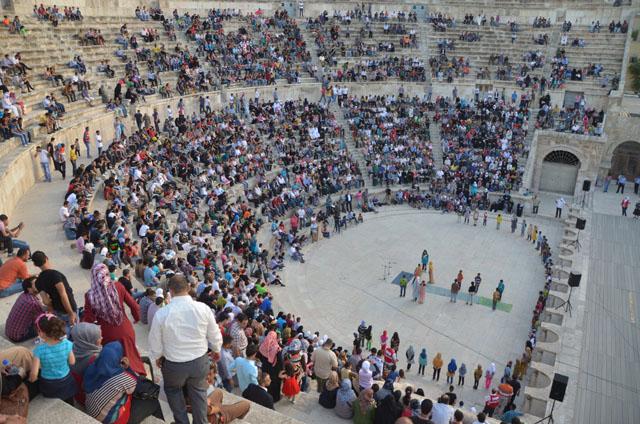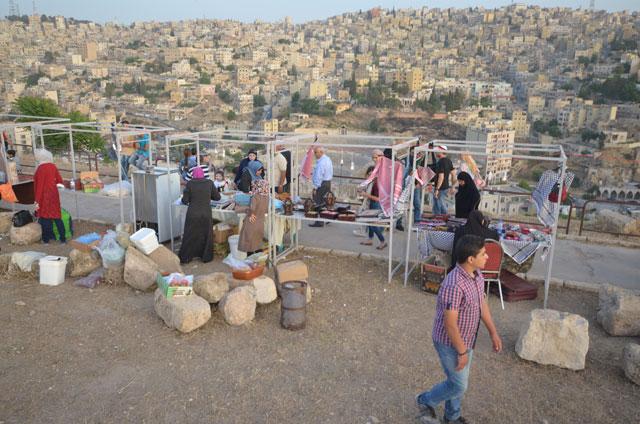You are here
Syrian refugees use handicraft skills to support their families
By Muath Freij - Sep 20,2014 - Last updated at Sep 20,2014

AMMAN — With no means of entertainment or job opportunities at the Zaatari camp, Syrian refugee Najah Al Ali turned to her handicraft skills to fill her free time.
Ali’s work has paid off, as she showcased her handmade products at a bazaar held by the Qatar Red Crescent (QRC) in Amman on Saturday along with 80 other Syrian women.
For Ali, preparing for the bazaar has helped her forget the hardships she has been through.
“Back in Syria, we make most of the items we use in the house instead of going out to the market to buy them. We have nothing to do at the camp in the morning, so we finally had the chance to fill our free time,” she told The Jordan Times near her stall at the bazaar, which was held at the Crowne Plaza Hotel.
QRC Chief of Mission Atef Dalgamouni said the one-day bazaar is part of its psychological and social support programme that targets Syrian men, children and women.
“As part of this programme, a crafts activity is organised with the aim of making Syrians forget what they have been through and that they are far from home,” he told The Jordan Times.
Syrian women work on their products for three months, after which the QRC holds a bazaar to sell their products, according to Dalgamouni.
“We started working on this programme in September last year, and we have organised three bazaars so far. All the proceeds go to the participating Syrian families,” the QRC official noted, adding that the organisation also held a bazaar in Qatar to display products made by the Zaatari camp women.
Dalgamouni said these women receive additional training to make these products.
“Syrian women benefit from the bazaar socially, psychologically and financially,” he added.
Titled “The Bazaar of Hope”, the event featured products that can be used at home, including sheets, jewellery boxes and prayer garments.
“During the first bazaar, we got an idea about the products that the public wants so we focused on making more of these items,” Dalgamouni added.
He said the Zaatari camp management collaborated with the QRC to allow the participating women to leave the camp in Mafraq, some 80km northeast of Amman, to display their products.
Lama Shaaban, one of the Syrian women, said participating in the bazaar helped her meet the needs of her family.
“My children, especially my 16-year-old daughter, also helped me make these items. My husband supported me to make all this happen,” added Shaaban, who has been in the camp for more than one year.
The mother of five voiced hope that her business would flourish in the future.
“I hope that I can open a store at the Zaatari camp to further help my husband in supporting our family,” noted Shabaan, who has taken part in the QRC’s two previous bazaars as well.
Related Articles
AMMAN — HRH Princess Basma Bint Ali, chairperson of the board of trustees of the Hashemite Fund for the Development of the Jordan Badia, on
Rawan Hatem has always dreamt of becoming a famous artist and has been longing to appear on TV.
AMMAN — Although Haifa Odwan does not make handicraft products, she decided to take part in a bazaar at the Amman Citadel to promote her nei


















